I've completed hundreds of DIY projects – but I would leave these 9 to the professionals
Tackling DIY projects yourself can be a real money saver, but some jobs are best left to those who are better qualified


If you’ve got a home project in the pipeline you’re probably thinking should I hire a handyman, contractor or do it myself? It's very tempting to tackle a project on a DIY basis, as you can save yourself a lot of money.
But be careful. I've taken on a lot of DIY projects in my time, with some proving to be very expensive mistakes. On other projects, I’ve been a danger to myself and have been left with a few scars, aches, and pains. But luckily, I'm still here, ready to take on the next project.
If there is one thing that I have learnt from my DIY adventures, it's that some projects you should simply avoid and call in a professional to do the job. They will be licensed (if needed), insured and will do a better job than you.
Should I hire a handyman or a contractor?

If a project is beyond your DIY capabilities, it's a good time to consider whether or not you should hire a handyman. But it's not that straightforward as there are no strict criteria on the job description of a handyperson. Different handypeople will have different skills, so you will need to check what skills they have and what jobs you can do. See if you can get testimonials from other clients that they have worked for.
If a handyperson is not qualified to tackle a job, then you should think about talking to a contractor. Make sure to ask at least two or three contractors for quotes. Ideally get them to make a site visit and make sure to verify their qualifications.
Do they have a license?
Handypeople typically tackle general home tasks which often don't need a license. For more specialist jobs like electrical and plumbing work a license is often required. This will differ from state to state, so check with your handyperson whether they have a license to perform certain works. Alternatively, check with your local authority to check they are licensed.
If you do hire a handyperson to take on a project that needs a license and they don’t have one you could be heading for trouble. Using an unlicensed person can invalidate your home insurance and lead to penalties and fines from your local authority.
Are specialist tools needed?
Specialist jobs will need specialist tools and as a DIYer there’s a lot of tools that won’t be in your collection. You don’t want to spend big on tools that will rarely be used. Does the same apply to the handyperson you're thinking of taking on?
Do they have what they need or will they need to hire them, which will add to the cost of a job. If it's a large project such as a remodel or a specialist job like plumbing in a bathroom you will need to talk to a contractor.
Electrical projects that you shouldn't DIY
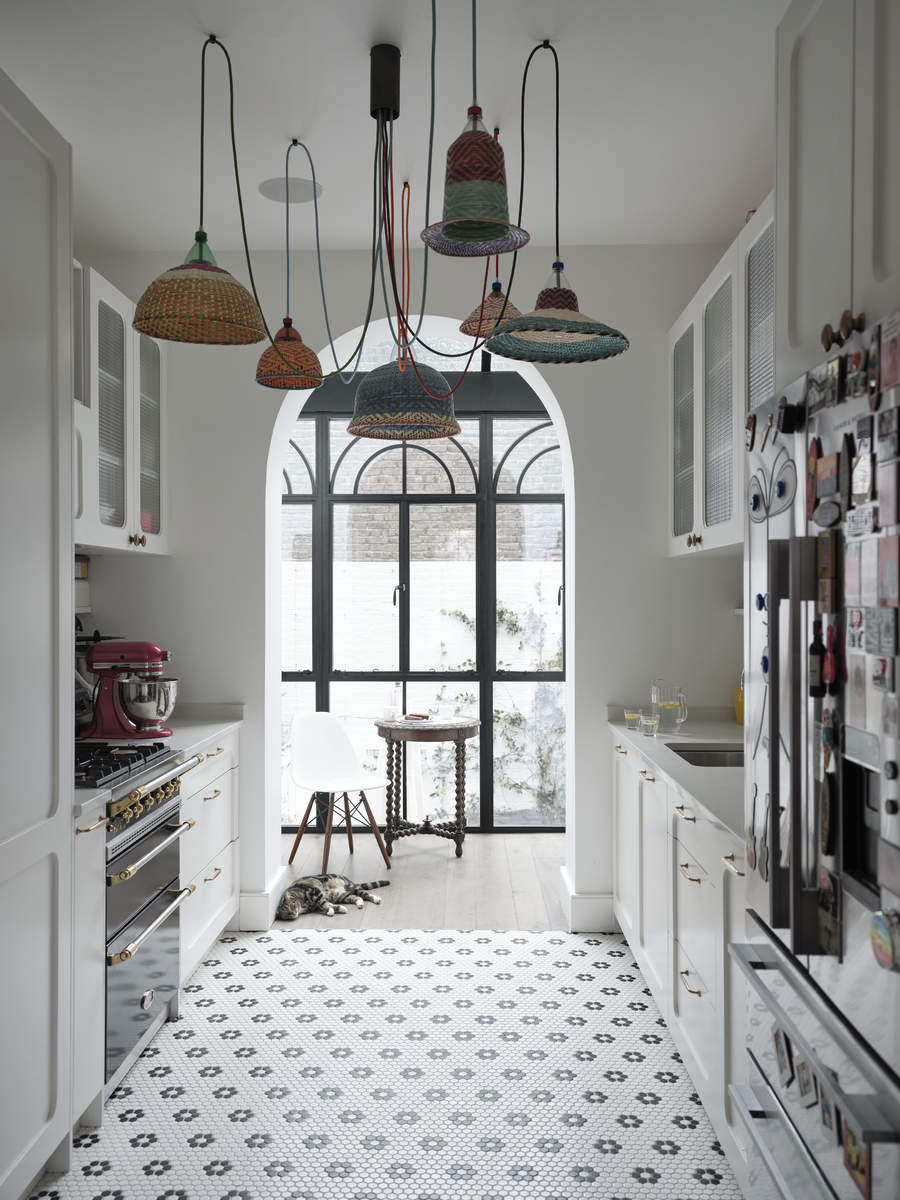
Electrical projects need a qualified electrician to complete a job. Taking them on yourself can be dangerous to you (believe me I know, I’ve electrocuted myself and it's not pleasant) and your home. Here’s a few electrical projects that I definitely wouldn’t tackle.
1. Replacing wiring
The wiring throughout a home isn’t easy to access and the wiring won’t be the same for every outlet. Different types of wiring will be needed for different appliances, so it's essential that the right wiring is chosen. Get it wrong and power surges can break appliances and in more extreme cases start fires. Definitely call in a professional.
2. Removing burnt outlets
Poor or old wiring can leave you with burnt outlets. Typically too much power is going to a wall outlet causing it to overload. This can leave smoke marks on the outlet and it will be hot to the touch. You can replace yourself, but if you don’t know the underlying issue the problem can easily reappear. Get it fixed by a professional.
3. Installing a new electrical panel
This one is simple. Don’t do it yourself. If you don't have any training, experience or a license to perform this task, definitely avoid. Installing incorrectly, or installing the wrong panel can lead to serious issues such as fires and electrocution.
My final advice would be to avoid almost all electrical jobs in the home. Replacing a plug on an appliance, or even a like-for-like light switch is as far as I would go. Beyond this it's a job for a pro.
Plumbing projects best left to the professionals
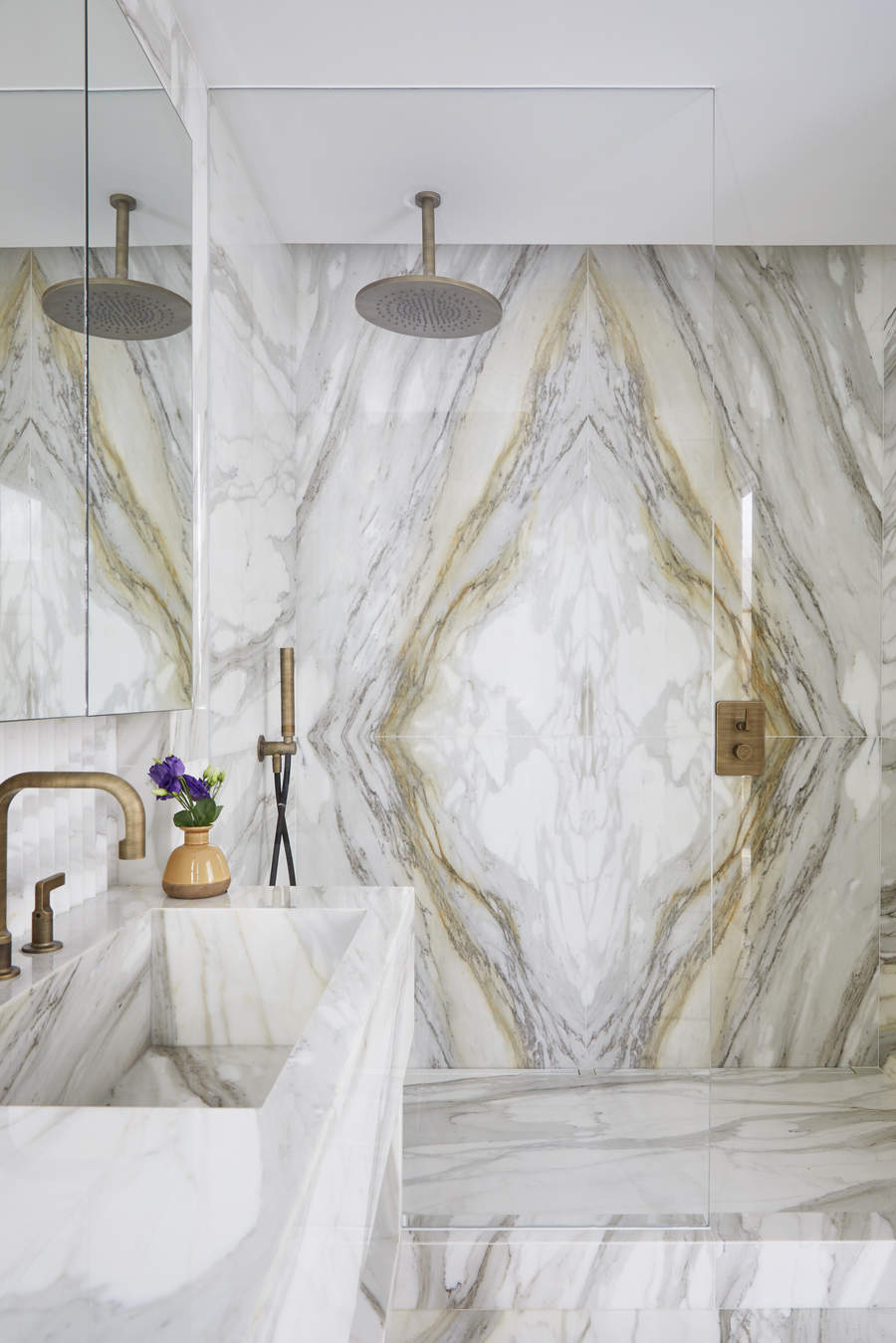
Plumbing projects need a technically qualified - and licensed - plumber to tackle most jobs. Get it wrong and you could be flooding your home or getting sewage seeping into your yard. And, ultimately repairs that cost twice the price thanks to your handy (or not so handy) work.
1. Replacing pipework
Any pipework replacement or repairs in the home, apart from very basic small jobs, should be left to a professional. Do you know what size pipework you need? What fittings do you need for a sink? Do they adhere to plumbing regulations? How do you connect pipework? Do you know where the pipework you are working on leads to?
These are just a few questions you’ll ask yourself when thinking of tackling the job yourself. If you know the answers to all of them, well done, you're probably a plumber. If not, make sure to call one in.
2. Don’t mess with sewer pipes
Sewer pipes reside underground or under your home and take away your unpleasant smelling waste. You need specialist tools like pipe cameras, and expert knowledge to fix any issues. Tackling a problem yourself could lead to damage to the pipes, which is unsanitary and expensive to sort. Again, leave alone.
3. Installing new fixtures
Adding new faucets, sinks and showers is a tempting proposition, as it's not as difficult as dealing with pipework replacement and sewer pipes. But, again it can easily go wrong.
It took me five attempts to sort the right pipework to fix my new faucet. I ended up speaking to a professional to get it sorted.
Get it wrong and you could easily have annoying hard to detect leaks that can lead to water damage, and costly - and what could have been avoided - repairs.
Other projects I would avoid as a DIYer
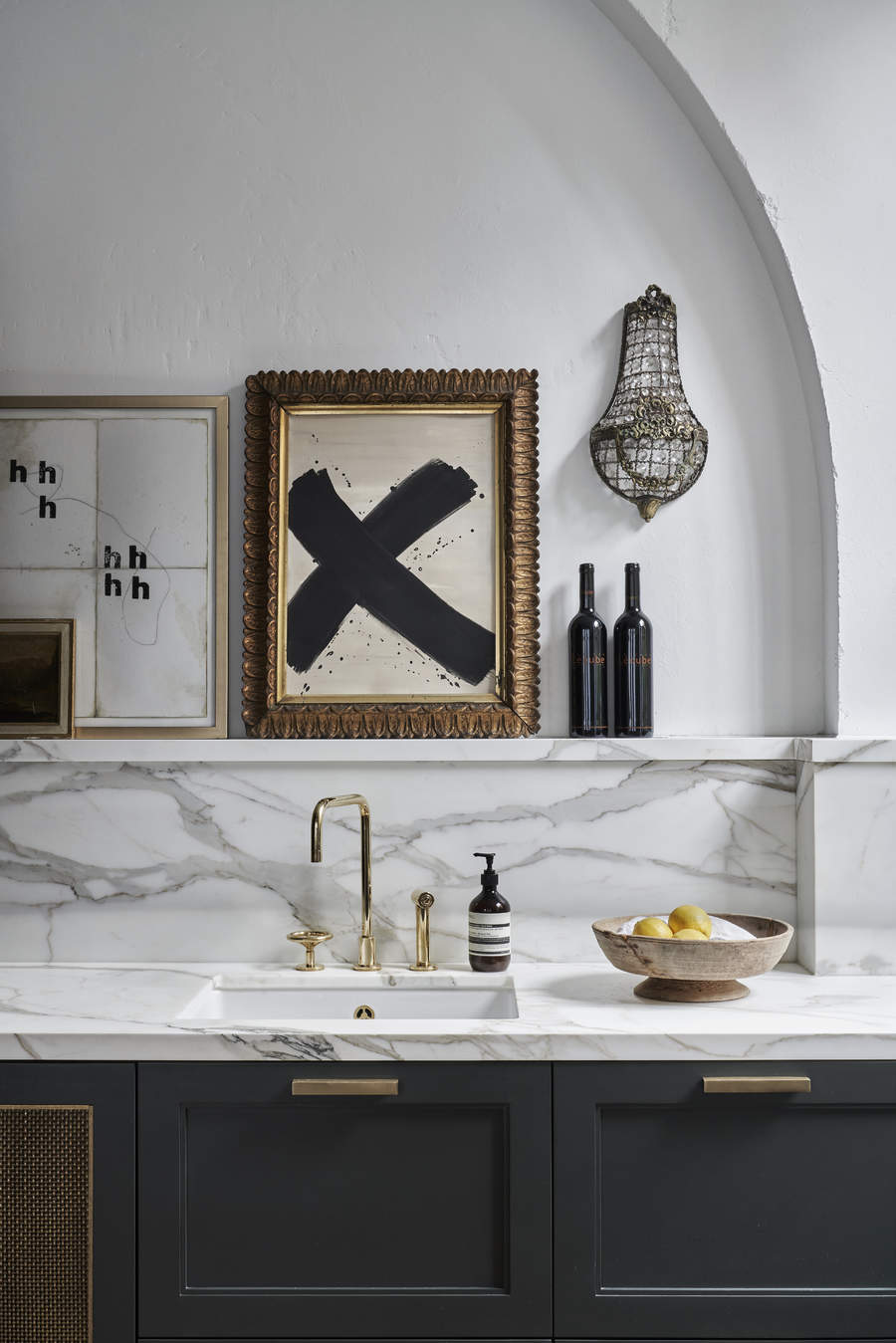
Plumbing and electrical work typically need a licensed contractor, while other home projects don’t. But that doesn’t mean you should tackle it yourself. Here’s a trio of projects that I leave to the professionals.
1. Replacing roofing
If you don’t have a head for heights (like me), roofing projects are best avoided, especially if you are looking at working on a two-story or three-story home. And, the higher a house is, the more difficult it is to access the roof.
It's not just access to a roof that can be problematic. What safety precautions and equipment do you need when on the roof? These are critical, falling off a roof can have serious consequences.
Then there’s the actual work itself. A roof keeps your home dry, replace a tile incorrectly, or make a mistake installing flashing or a chimney cap, and water can seep into your home causing extensive (and expensive) damage.
2. Tiling projects
Basic wall tiling in a bathroom or kitchen is a project that you can tackle (I have) to save a few dollars. But on the downside, there is the cost of purchasing new tools to do the job.
If you are looking to install specialist (and expensive) tiles, you don’t want to be cutting and fitting them incorrectly. Complex tile patterns are not for beginners (again trust me) and if tiling showers or wet rooms, do you know the process to waterproof the area and what adhesive to use? The pros do.
3. Specialist kitchen countertops
Wooden countertops are the easiest (and typically the least expensive) to work with. You will need a few tools like this DEWALT 20V MAX Router Tool and Jigsaw set from Amazon to ensure a good fit.
But specialist countertops such as Quartz, Granite and Marble are nowhere as easy to fit (we’ve tried). Again you need specialist tools and specialist knowledge. Not recommended for novices.
If you still feel the urge to pick up your toolbox, you could try your hand at one of these stylish DIY projects that will elevate your home.
Sign up to the Homes & Gardens newsletter
Design expertise in your inbox – from inspiring decorating ideas and beautiful celebrity homes to practical gardening advice and shopping round-ups.

Steve has been a homes writer and editor for two decades, regularly contributing to brands like Homebuilding & Renovating Magazine. He is an avid DIYer with over 20 years of experience transforming and renovating homes. He specializes in painting and decorating but has strong all-around building skills, having worked in the industry for ten years.
-
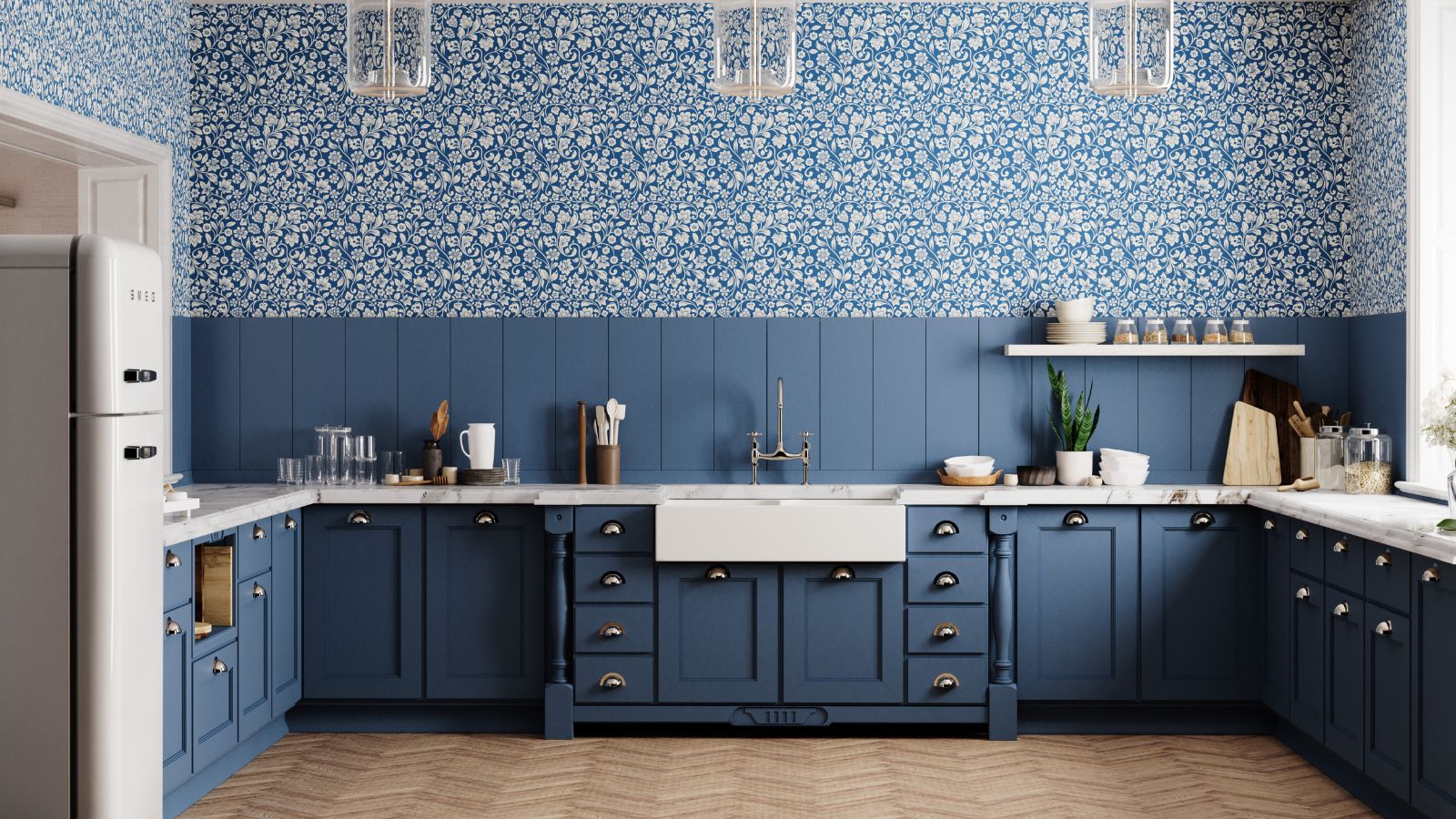 Do cleaning products expire? Professional cleaners warn time could make them ‘less effective, and in some cases, irritating to use’
Do cleaning products expire? Professional cleaners warn time could make them ‘less effective, and in some cases, irritating to use’For the best results, it pays to stay on top of the timeline of your cleaning products
By Chiana Dickson Published
-
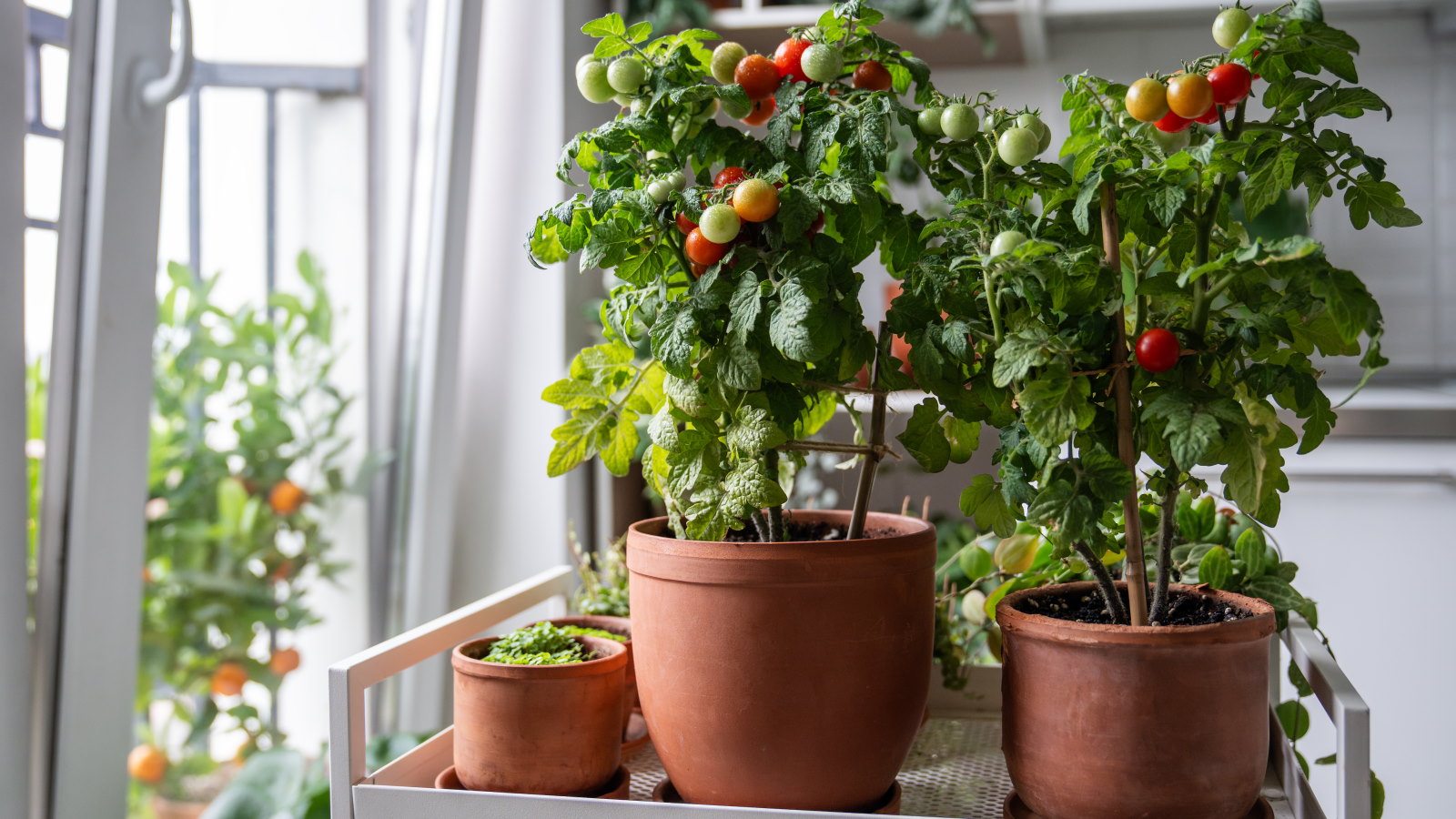 7 of the best tomatoes for growing in pots - expert growers pick their top varieties ideal for large harvests from containers
7 of the best tomatoes for growing in pots - expert growers pick their top varieties ideal for large harvests from containersYou can enjoy bumper homegrown harvests in small spaces
By Drew Swainston Published
-
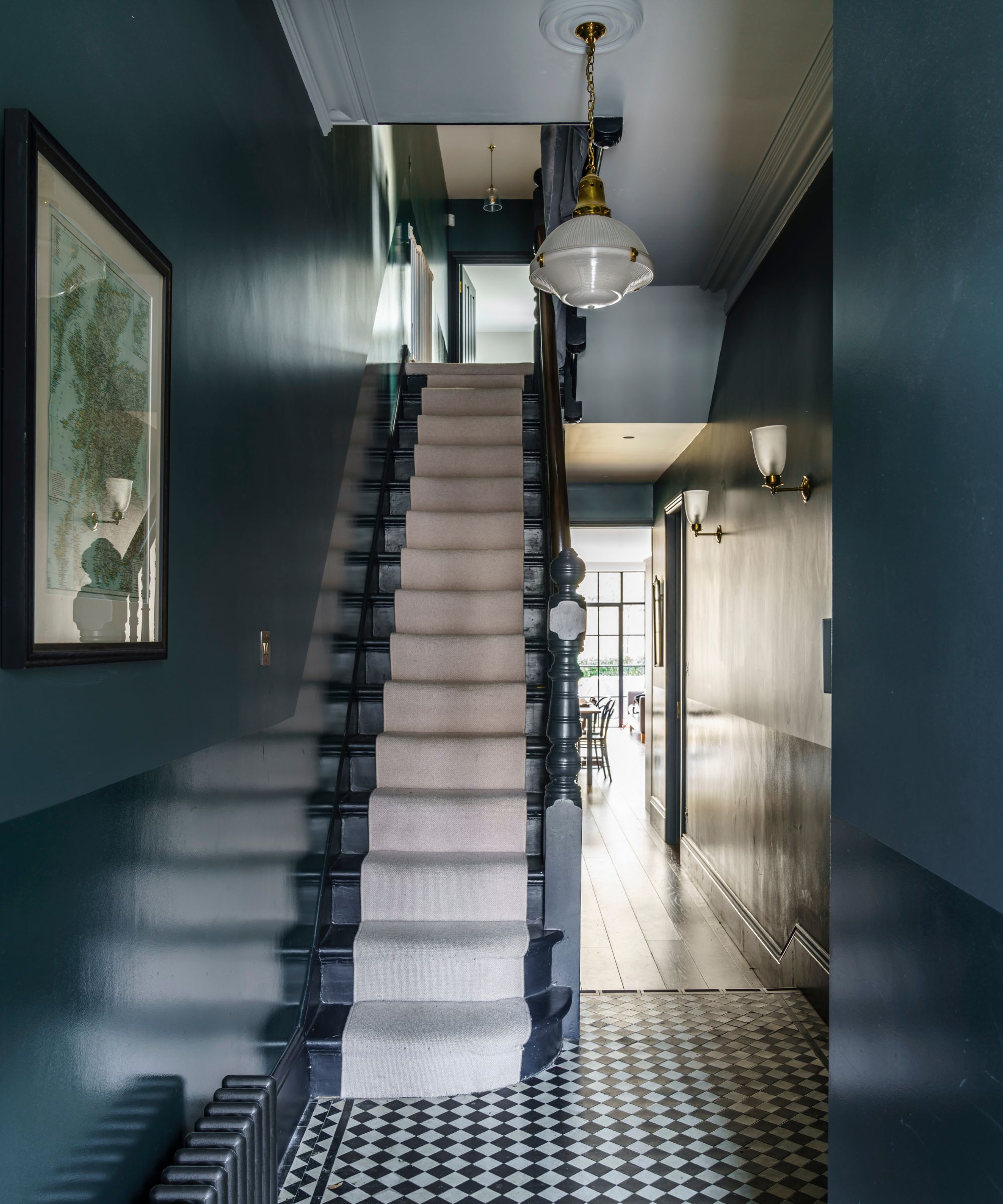 5 beautiful and impactful home improvement projects you can DIY this weekend for under $200 – you don't have to spend big to make a statement
5 beautiful and impactful home improvement projects you can DIY this weekend for under $200 – you don't have to spend big to make a statementFrom painting your fireplace to redecorating your door, little changes can transform and refresh your space
By Ottilie Blackhall Published
-
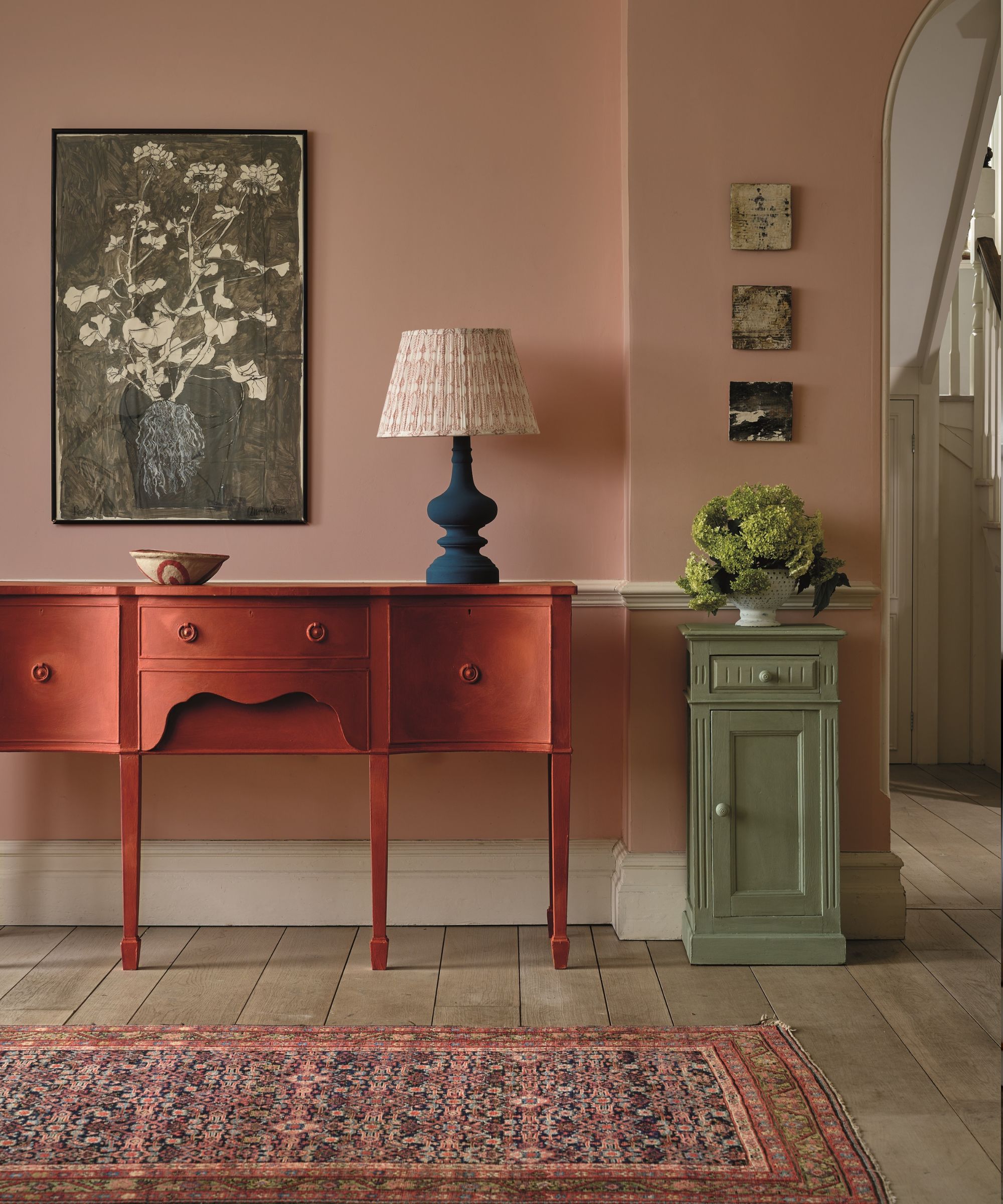 How to paint over stained wood – 6 simple steps expert painters swear by for even, lasting finishes
How to paint over stained wood – 6 simple steps expert painters swear by for even, lasting finishesSkipping even one step will result in chipping paint, experts warn
By Natasha Brinsmead Published
-
 Can you put wallpaper on textured walls? Experts reveal it is indeed possible with this vital step
Can you put wallpaper on textured walls? Experts reveal it is indeed possible with this vital stepPrep, prep and prep some more for wallpapering success
By Sophie Warren-Smith Published
-
 8 helpful ways to re-purpose old pillows – from making handy garden kneelers and draft excluders, to cozy pet beds
8 helpful ways to re-purpose old pillows – from making handy garden kneelers and draft excluders, to cozy pet bedsSustainability experts say these bulky items don't have to go to waste
By Sophie Warren-Smith Published
-
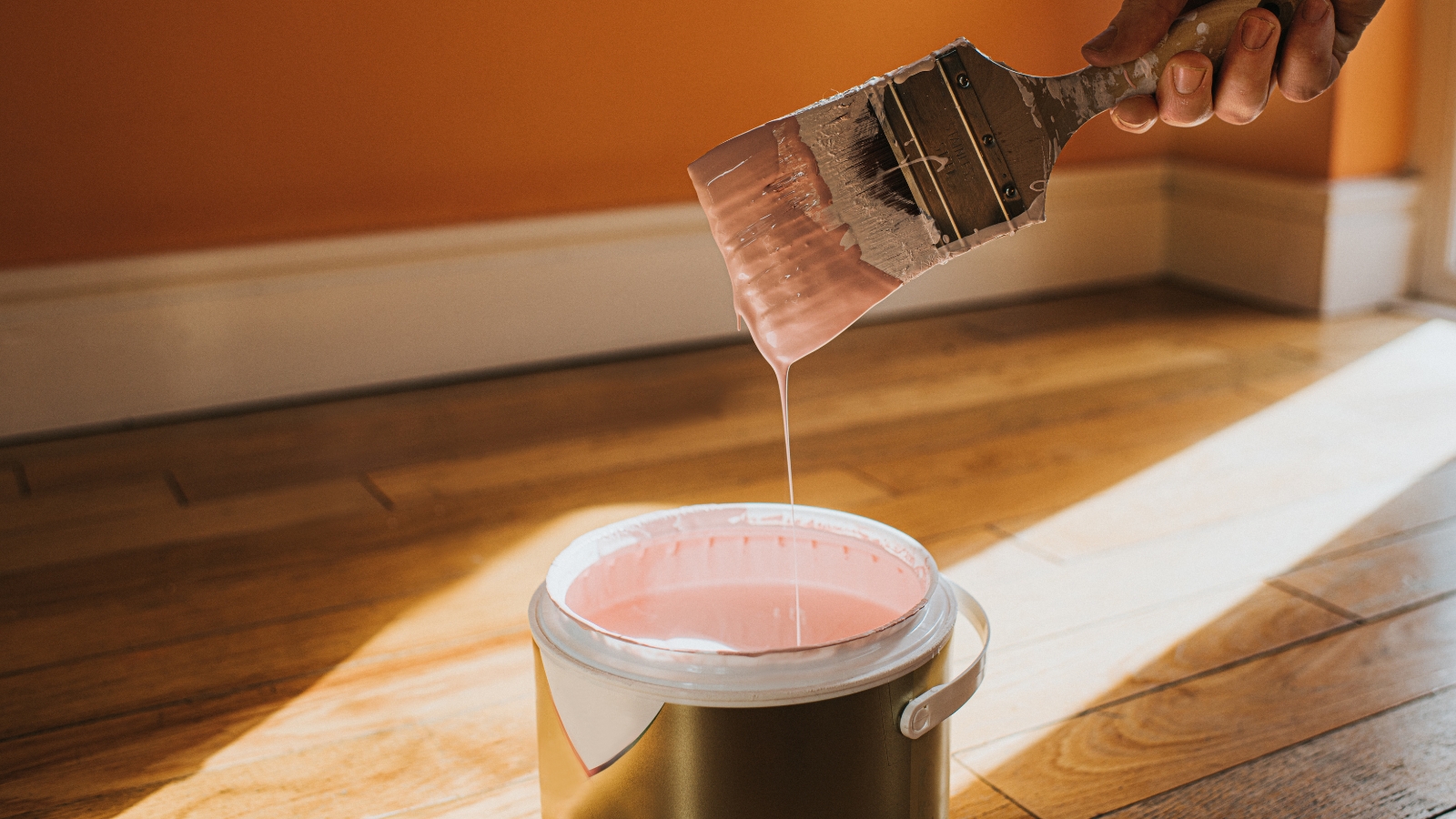 7 practical things you can do with leftover paint around your home including protecting outdoor furniture, tinting cement and creating touch-up kits
7 practical things you can do with leftover paint around your home including protecting outdoor furniture, tinting cement and creating touch-up kitsPro tips to make the most of those extra supplies
By Andy van Terheyden Published
-
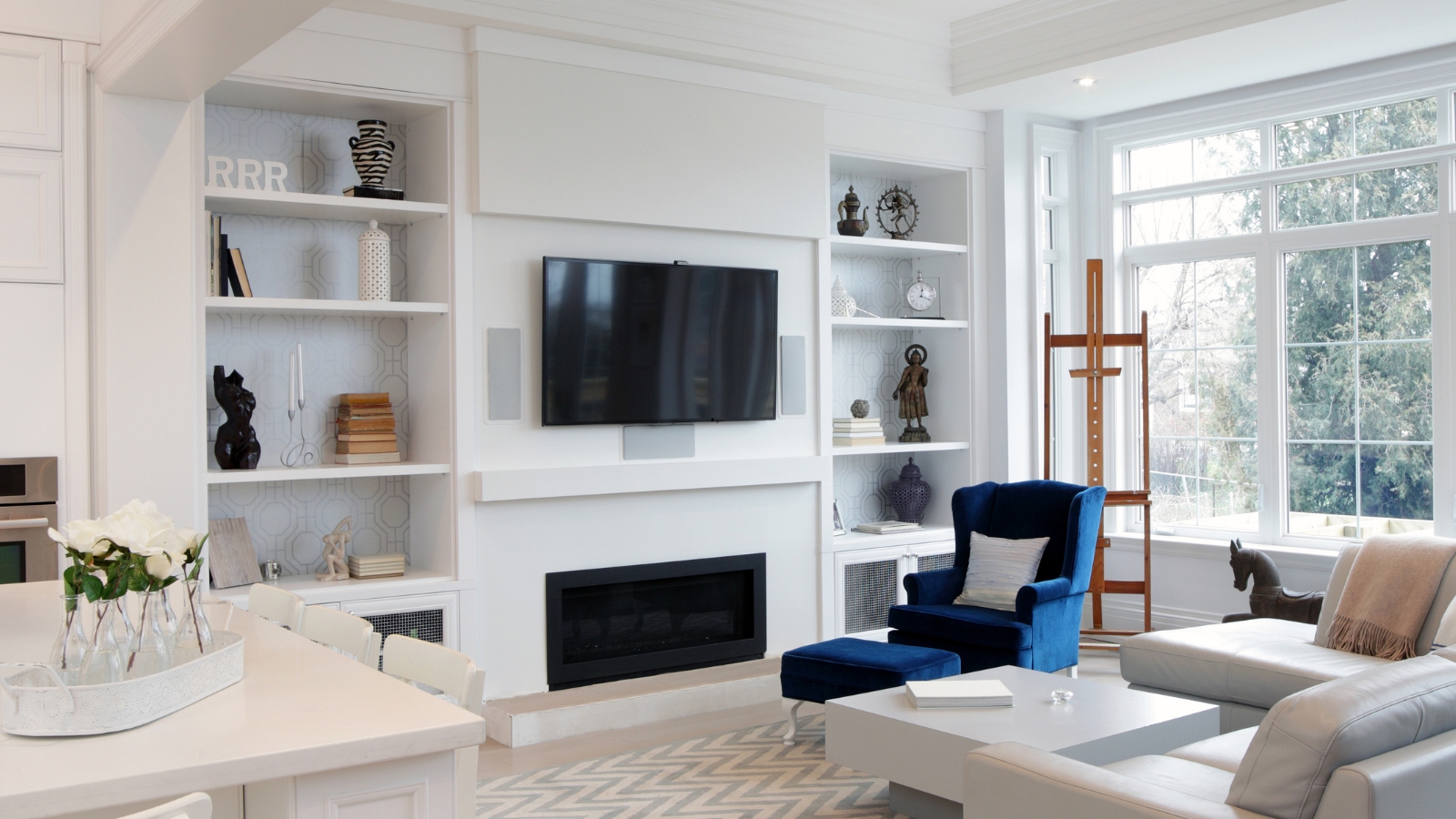 Construction pros reveal the 6 mistakes to avoid when hanging drywall for perfect walls and ceilings
Construction pros reveal the 6 mistakes to avoid when hanging drywall for perfect walls and ceilingsThey see these all the time
By Natasha Brinsmead Published
-
 Why is my wall paint bubbling? Decorators reveal why it happens and how you can fix it
Why is my wall paint bubbling? Decorators reveal why it happens and how you can fix itBubbles look unsightly and might indicate a more serious problem
By Ottilie Blackhall Published
-
 Christmas decorating stalled by missing tools and essentials? These 6 festive DIY job must-haves will get your delayed tasks back on track
Christmas decorating stalled by missing tools and essentials? These 6 festive DIY job must-haves will get your delayed tasks back on trackGet your holiday decorating going again with our Christmas first-aid kit
By Chiana Dickson Published